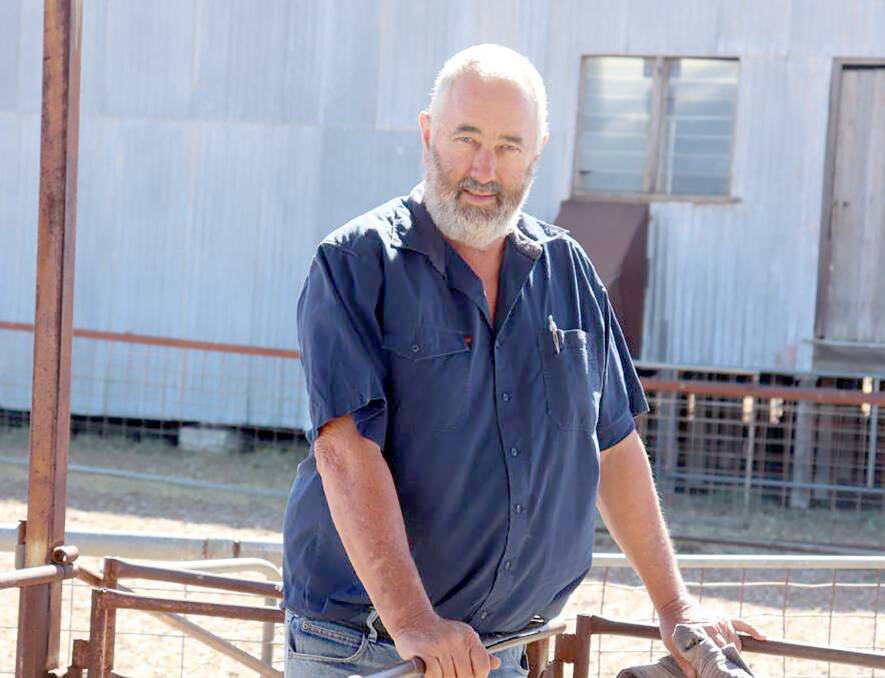
The State government has been urged to delay the rollout of mandatory electronic identification (eID) tags, with many sheep now being sold for less than the value of a $2 tag.
Pastoralists and Graziers' Association of WA (PGA) livestock committee chairman Chris Patmore said it was "madness" to impose another cost on sheep enterprises, particularly when many would already be operating at a loss.
The Federal government's commitment to ban live sheep exports by sea and a worldwide oversupply of sheepmeat has been blamed for the dramatic fall in prices and, ultimately, industry confidence.
As such, Mr Patmore called upon WA Agriculture and Food Minister Jackie Jarvis to postpone the implementation of eIDs, which is scheduled to come into effect from January 1, 2025, until the industry returns to profitability.
He said while PGA did not support mandatory eIDs, it participated in "good faith" with the Department of Primary Industries and Regional Development (DPIRD).
"Imposing extra costs when most producers are running at a loss will only hasten their exit from the industry," Mr Patmore said.
"It is no longer the right time to introduce a high cost replacement for the current mature and successful system of visual tagging, combined with reporting of mob-based movements onto the National Livestock Identification System (NLIS) computer database."
Last month, the Federal government announced $22.5m had been awarded to Integrity Systems Company, a wholly-owned subsidiary of Meat & Livestock Australia, to build a new national livestock traceability platform.
The project is not expected to be completed until mid-2026.
Mr Patmore was doubtful the introduction of a completely new sheep traceability system would be "seamless and trouble free".
He said it was more likely to cause more confusion in an industry already confronting market turmoil.
"We don't have confidence DPIRD will have the program up and running by 2025, particularly with staff shortages," Mr Patmore said.
"Separately, the WA Government has not revealed details surrounding the $22.2m funding boost (announced in April to assist with the transition) and I can't see that it will be ready by January 2025.
"Why would the supply chain participants invest their own money prior to a subsidy being made available?
"It is not leaving equipment manufacturers enough time to get their gear manufactured or abattoirs or saleyards to install and have it working."
Beverley sheep producer Jeff Murray was supportive of the PGA's call to delay the mandatory use of eID tags.
Mr Murray breeds his own prime lambs, which have halved in price over the past 12 months.
He said given the current state of industry, pushing the date was a no-brainer.
"I am feeling hurt, but that's farming - prices go up and down, it is supply and demand," Mr Murray said.
"I think pushing back the mandatory roll-out is a good idea and one less thing for producers to worry about,
"To be fair, I think we have the best manual tracing system with the transaction tags, so there would be no harm in leaving it as is until industry returns to some profitability.
"NSW is the biggest sheep State and it is looking at introducing eID in 2027.
"Why aren't all of the States in line with each other?"
Mr Murray said, while the Federal government's live sheep export ban had not come into effect, industry was already feeling the impact.
He said the trade played an important role in providing protein to people in the Middle East that they wouldn't otherwise have access to.
"Food security is what it's all about - that's where our role is.
"The Middle East is our major market for barley, we have to give with both hands not give with one and take with the other.
"I think we are shooting ourselves in the foot if we are banning this and banning that."
Mr Murray added, "I am past president of the Sheepmeat Council Australia have been to the Middle East on several ocassions where I have seen it first-hand".
"The markets require all sections of our meat trade, they want frozen, chilled and live product," he said.
"This is a war WA producers cannot afford to lose."
Minister Jarvis said she had received the letter from PGA and was seeking further advice from DPIRD about the implementation timeline.

